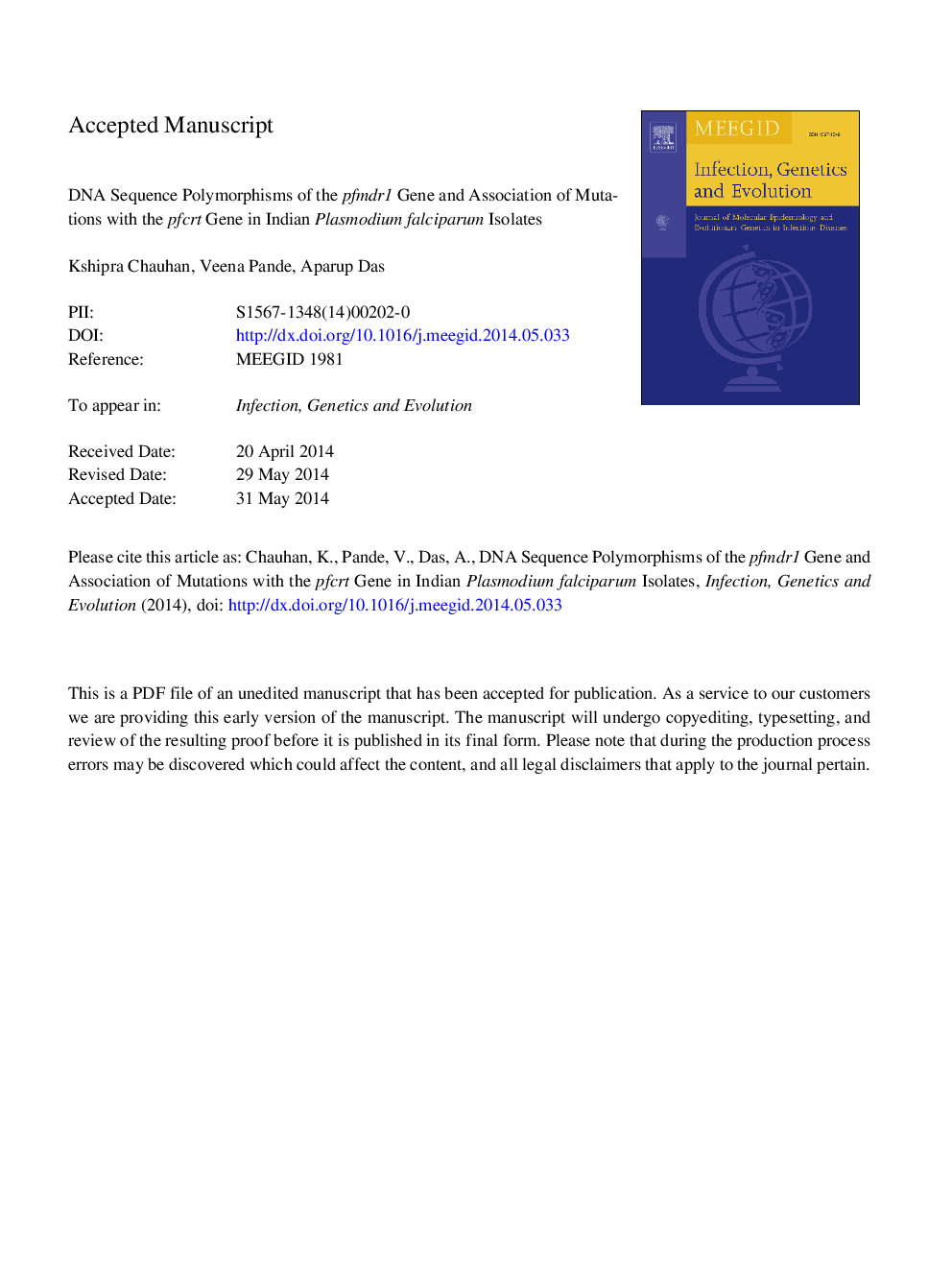| Article ID | Journal | Published Year | Pages | File Type |
|---|---|---|---|---|
| 5909653 | Infection, Genetics and Evolution | 2014 | 35 Pages |
Abstract
Mutations in the Plasmodium falciparum multidrug resistance (pfmdr1) gene are known to provide compensatory fitness benefits to the chloroquine (CQ)-resistant malaria parasites and are often associated with specific mutations in the P. falciparum CQ resistant transporter (pfcrt) gene. Prevalence of the specific mutations in these two genes across different malaria endemic regions was mostly studies. However, reports on mutations in the pfmdr1 gene and their genetic associations with mutations in the pfcrt gene in Indian P. falciparum field isolates are scarce. We have sequenced a 560Â bp region of pfmdr1 coding sequence in 64 P. falciparum isolates collected from different malaria endemic populations in India. Twenty out of these 64 isolates were laboratory cultured with known in vitro CQ sensitiveness (10 sensitive and 10 resistant). Three low frequency mutations (two non-synonymous and one synonymous) in the pfmdr1 gene were segregating in Indian isolates in addition to the predominant Y86 and Y184 ones, with high haplotype and nucleotide diversity in the field isolates in comparison to the cultured ones. No statistically significant genetic association between the mutations in the pfmdr1 and pfcrt gene could be detected; almost all observed associations were intragenic in nature. The results on the genetic diversity of the pfmdr1 gene were discussed in term of evolutionary perspectives in Indian P. falciparum, with possible future potential of gaining further insights on this gene in view of evolving malaria parasites resistant to artemisinin partner drugs.
Related Topics
Life Sciences
Agricultural and Biological Sciences
Ecology, Evolution, Behavior and Systematics
Authors
Kshipra Chauhan, Veena Pande, Aparup Das,
